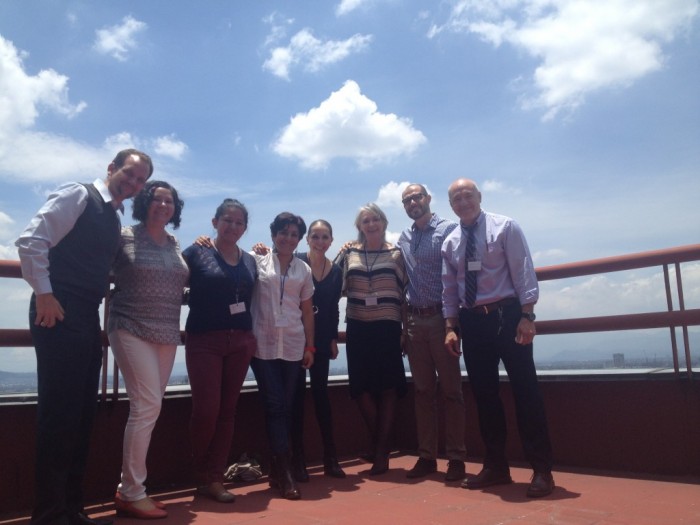 The launch of the “Climate Protection in Mexico’s Urban Policy” program started with a selection process of partner cities for implementing the program on a local scale. Four thematic focuses were also determined as priorities for the urban planning component: building a conceptual framework, green infrastructure, densification, and financing.
The launch of the “Climate Protection in Mexico’s Urban Policy” program started with a selection process of partner cities for implementing the program on a local scale. Four thematic focuses were also determined as priorities for the urban planning component: building a conceptual framework, green infrastructure, densification, and financing.
The CiClim Program has three components:
- Climate-friendly urban development / urban planning
- Conservation of ecosystem services in cities and peri-urban zones
- Sustainable urban mobility
These three components will work together in a cross-cutting manner. At federal level, cooperation will be carried out mainly with the project’s partners: the Mexican Ministry of Agrarian, Territorial and Urban Development (SEDATU) and the Mexican Ministry of Environment and Natural Resources (SEMARNAT). On a local scale, three cities will be selected for establishing regional branches.
Identification of four lines of work in urban planning
In Mexico City on August 11, 2017, a meeting was held for developing the urban planning component in order to identify priority activities starting in 2017. Said activities needed to be aimed at the program’s goal: “Reinforcing institutional and personal capacities for planning and implementing climate policies, strategies, and protective measures in Mexican urban policy”. Four lines of work were identified as having top priority: building a conceptual framework, green infrastructure, densification, and financing.
Selection of Cities
On the basis of the ideas that were expressed during the workshop, a preliminary list was prepared, which was then shortlisted to a smaller number of cities that would be invited to participate in the selection process. The established parameters were the following: analysis of safety based on crime occurrence in the first six months of 2017; population of more than 250,000 inhabitants; and avoiding duplicating efforts that are already being implemented by other international cooperation programs.
Thereafter, only one city per state was selected, giving priority to the capital cities for being seat of state governments. Cities located in municipalities within the metropolitan zone of the state capital, were also included to allow for potential cooperation with metropolitan coordination bodies.
Taking these criteria into consideration, a list of 17 cities was drawn up, which were all invited to demonstrate their interest by submitting a letter of intent. The nine cities that responded were then asked to fill out a questionnaire, which will be the basis of the evaluation. The questionnaire included categories such as municipal laws and instruments, mainstreaming climate change, institutional framework, shared leadership, and international experience.
SEDATU and SEMARNAT participated in the planning workshop as well as in the selection process of the cities. In the federal strategic planning workshop of the CiClim program in December 2017, participants will seek an approach with additional key players. The CiClim project is implemented by the Deutsche Gesellschaft für Internationale Zusammenarbeit (GIZ) GmbH and forms part of the International Climate Initiative (IKI) of the German Federal Ministry for the Environment, Nature Conservation, Building and Nuclear Safety (BMUB).

